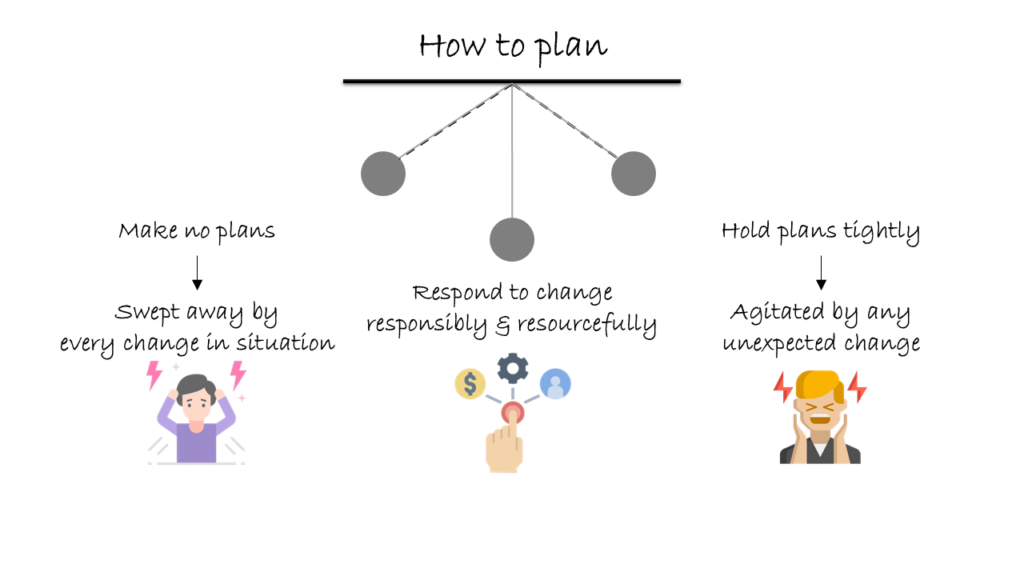Planning: how to be firm yet flexible
Whenever we make plans, it’s essential to approach them in a balanced way. Plans can be compared to routes for our life journey. If we are serious about reaching a particular destination—especially in a crowded city—we need the best possible route. However, excessive attachment to that route can lead to frustration and disorientation when unexpected obstacles arise.
For instance, if traffic becomes too heavy or a crash blocks the road, we use GPS to reroute or choose an alternative. We don’t insist on sticking to the original plan simply because we made it. Yet, in life’s journey, we often cling to our plans, even when circumstances demand change. This attachment can leave us agitated and blaming others or external factors for the disruption.
Conversely, some may abandon planning altogether, adopting a passive approach and hoping to “go with the flow.” This mindset is akin to expecting the flow of traffic to take us to our destination without any effort or direction.
The extremes to avoid
Both extremes—rigid attachment to plans and the complete lack of planning—are counterproductive. The Bhagavad-Gita (18.35) highlights the dangers of such self-destructive thought patterns. To progress effectively, we must learn to balance responsibility and resourcefulness:
Responsibility: Taking our goals seriously and making thoughtful plans to achieve them.
Resourcefulness: Adapting plans to changing circumstances, taking stock of the situation objectively, and choosing the best course of action in the new context.
This balanced approach allows us to navigate life’s complexities responsibly and resourcefully, moving steadily toward our goals without getting stuck or drifting aimlessly.

Summary:
- Excessive attachment to a plan is like insisting on using a blocked route to reach a destination, leading to frustration and stagnation.
- Abandoning plans entirely is like expecting traffic to guide us aimlessly to our goal, which is equally ineffective.
- By being responsible enough to make well-thought-out plans and resourceful enough to adapt to changing circumstances, we create the best opportunities for progress in life.
Think it over:
- Have you observed someone becoming excessively frustrated because their plan didn’t work? How did their attachment affect their progress?
- Have you seen someone drift aimlessly through life due to a lack of planning?
- What does the combination of being responsible and resourceful mean for you, especially in relation to a purpose important to you?
***
18.35 And that determination which cannot go beyond dreaming, fearfulness, lamentation, moroseness and illusion – such unintelligent determination, O son of Pṛthā, is in the mode of darkness.



Leave A Comment